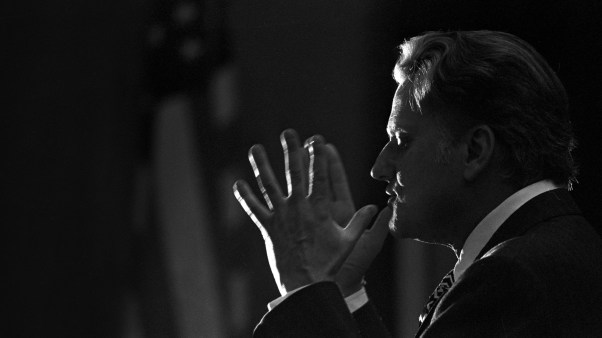Surely by the time Elijah wandered off into the desert to die, he would have been a hard guy to discourage. He had stood up to some of the most memorable (and pathetic) murderers in the Bible, survived a long famine, and sacrificed alone as a servant of God vying against Baal’s priests. Throughout his life, God had vindicated his faith and kept him safe.
But in the little speech Elijah prepared for God to tell him why he had gone off alone and prayed to die, he reveals something: he doesn’t want to be the only one obeying God. “I am the only one left, and now they are trying to kill me too.” Elijah was using his exaggerated spiritual isolation as an excuse to quit. Someone else in his place might have said, “Less than one percent of the people of God worship you exclusively!”
He might have been exceptional in almost every way, but Elijah wasn’t the only faithful believer in Israel, and he wasn’t the last faithful believer to demonstrate an irrational response to statistics. We’re all more likely to act faithfully when we think we’re in the moral majority rather than in a moral minority.
If you’ve heard a call to moral reform, you’ve likely heard a statistic that goes with it. Half of Christian marriages end in divorce! (Debunked here and discussed here.) The vast majority of single evangelical Christians are sexually active! (Corrected here, and apologized for here.) Less than a quarter of families in churches tithe! Most Americans can’t name half of the Ten Commandments!
Imagine that you’re a Christian, frustrated with your low salary, but a faithful tither. How would you react if you heard that 75 percent of your congregation didn’t give to the church at all?
I suspect most people believe that the shock of statistics will make Christians gird up their loins and change. Citing ways that most Christians are behaving badly is a way for pastors and pundits to build a case.
But research shows that statistics have a life of their own. They’re not just reports on what is happening; they change what is happening. From what behavioral economists have found from experiments about the psychology of decision-making, statistics often inspire the exact actions Christian leaders don’t want.
Basically, people tend to move closer to the behavior they perceive as normative, whether it's worse or better than their current behavior. This is called social proof. When people change for the worse, it's called a boomerang effect. It might be just as helpful to think of it as a Nobody Wants to Be a Weirdo (Especially When It’s Hard) Effect.
Over and over, people show that when they’re confused (as we often are about money, sex, and other private things) they take the action of the majority to be the standard.
What’s the lesson here? I certainly don’t think it’s to hide the truth about our behavior when the truth is disappointing. The research does seem to indicate that it’s usually a bad idea to scold or frighten congregations with bad statistics about people like themselves. And certainly—as if there weren’t other reasons—Christians should be especially careful to make sure that the numbers we’re using really apply to the situation.
A few years ago, some researchers decided to see whether they could counteract a boomerang effect. They gave people information about how much energy their neighbors were using, and about how they ranked among their neighbors. As expected, when the researchers just told people where they fell among their neighbors, the best energy savers became a little worse, and the worst energy users became better.
But then, they added something. In academic language, it was “a positively valenced emoticon." To most people, that’s a smiley face. It turned out that adding a stamp of approval to people’s above-average performance helped them maintain it.
Research doesn’t show what the equivalent of a smiley face is when you’re not giving people a report card. Would praising the minority when you mention the missteps of the majority work? Would personal thanks from deacons or pastors make a difference? It’s worth a try.
Elijah got even more pointed encouragement. God sent an angel to make Elijah breakfast, and he allowed Elijah to see him pass by. As God passed, he spoke to Elijah in a gentle whisper and corrected the record: Elijah was not alone. There were 7,000 faithful Israelites who had not served the Baals. (This is not a promising statistic, and we’re not told whether it eased Elijah’s mind at all.) God gave him new work and a new helper, and Elijah got up, empowered. After all, God has always worked with a minority.









